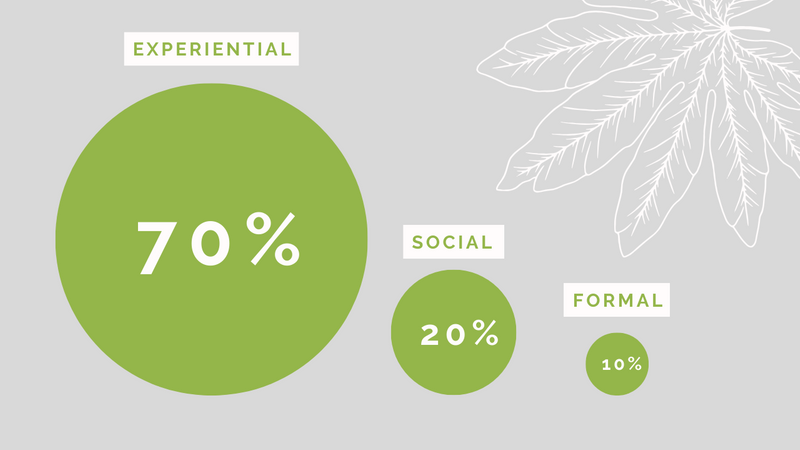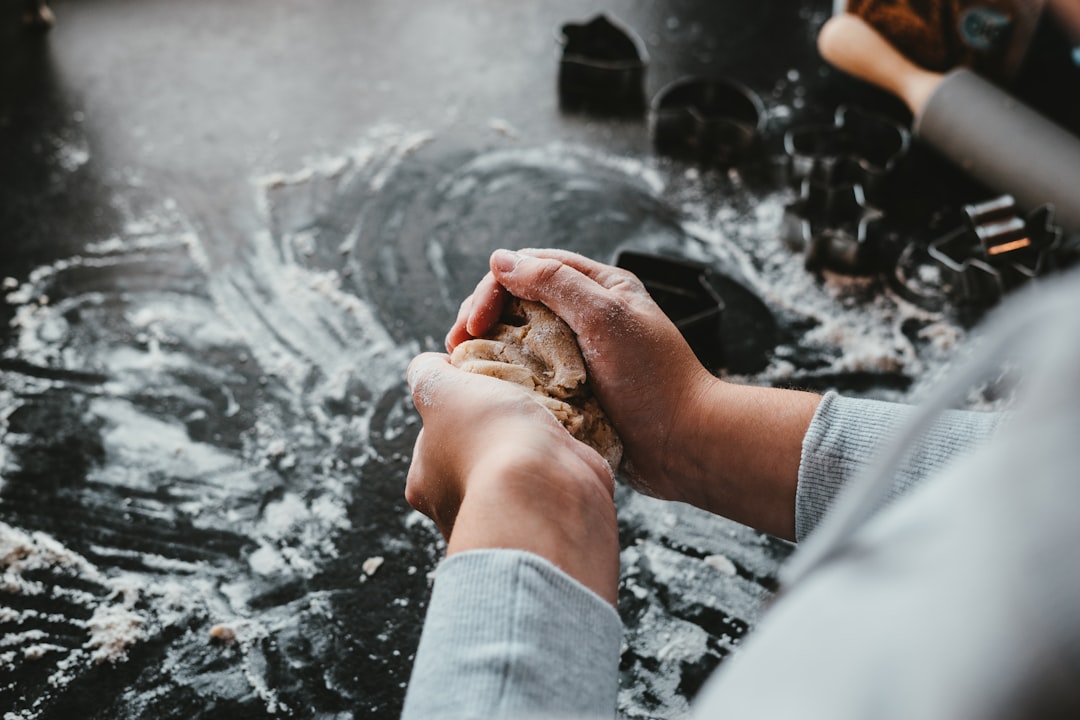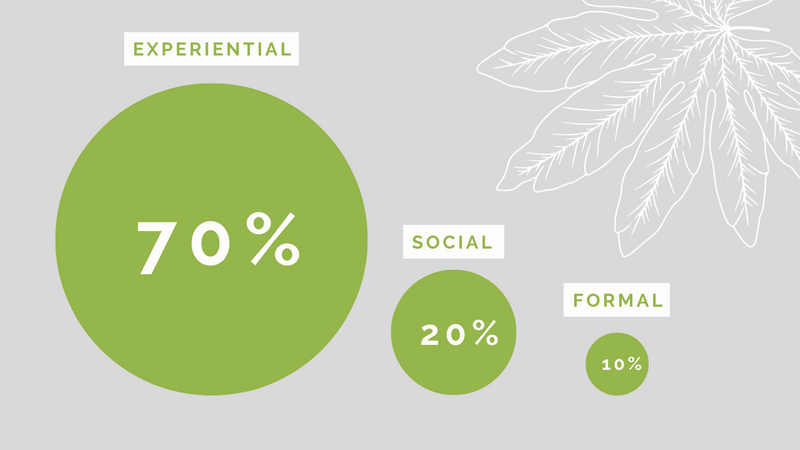
This logo isn't an ad or affiliate link. It's an organization that shares in our mission, and empowered the authors to share their insights in Byte form.
Rumie vets Bytes for compliance with our
Standards.
The organization is responsible for the completeness and reliability of the content.
Learn more
about how Rumie works with partners.
Not all learning happens in a classroom.
In fact, most learning happens in informal settings: on the job, or when we're working with others.
The 70/20/10 Model helps us see all of the opportunities we have to grow and build our skills.

Did you know?
10% Formal Learning
Think of formal learning as something structured. It's got a defined format and a clear objective. It could be a college course, reading a book, or even taking this Byte.
According to the 70/20/10 Model, formal learning should only be 10% of our professional development.
Formal learning is great to build background context, but should be paired with social learning and experiences to turn concepts into practical skills.

Quiz
If you wanted to learn to cook a new dish, which of these would be a good formal learning activity?
Reading a cookbook to learn about recommended strategies and recipes would be a structured formal activity to help you learn to cook a new dish.
20% Social Learning

The 70/20/10 Model suggests that 20% of professional development occurs through social learning.
Social learning activities allow us to learn from others. This might take the form of job shadowing, mentoring, coaching, or other group activities. Social learning gives us the benefit of feedback and encouragement.
Quiz
If you wanted to learn to cook a new dish, which of these would be a good social learning activity?
Asking a friend to show you how to cook a new dish is a great social activity that allows you to learn from their experience. Because it's interactive, you can ask them questions and they can provide you with feedback.
70% Experiential Learning
Most learning takes place through hands on experience. In other words, we learn best through doing. Experiential learning is what happens on the job or as we go about our day to day lives.
Experiential learning allows us to get immediate feedback through our results: what works, what doesn't, what are the consequences.
The key to experiential learning is being mindful. It's up to you to reflect on your experiences, notice the results, and adjust your behaviour accordingly.

Quiz
If you wanted to learn to cook a new dish, which of these would be a good experiential learning activity?
Getting hands on experience by trying the recipe yourself is the best way to learn in real time. How the recipe tastes and if it resembles the image in the cookbook, would be great opportunities to learn and build your skills.
Take Action
Remember the 70/20/10 Model when it's time to learn something new. Formal learning is good to build a foundation, but it's likely that there are many experiential and social learning opportunities at your finger tips.
In fact, try picking a skill you are currently interested in building. Make a list of what social and experiential learning opportunities you could create for yourself.

This Byte has been authored by
Sam Zimmer
Rumie Director of Learning